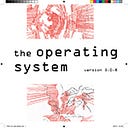9TH ANNUAL NAPOMO 30/30/30 :: DAY 3 :: Alina Stefanescu on Eugen Jebeleanu
- I learn from the dead. Romanian poet Eugen Jebeleanu was born on 24 April 1911 and died on 21 August 1991.
- He’s not an easy poet to categorize in the US, where we prefer simple binaries of complicity. He published twelve collections of poems, received numerous European literary awards, and was nominated by the Romanian Academy for the Nobel Prize, but that means nothing to me as a poet or reader. What I love about Jebeleanu’s poetics is the lack of ideological or social purity. I love him for his rue and ambivalence. I love him for his, yes, his poeming of (and through) shame.
- “A chimera is born from rain,
invisible rain.” - See, Jebeleanu began as an ardent member of the Romanian Communist Party, a privileged bearer of the Party card, an enthusiastic apologist for the regime, Jebeleanu was considered a “liberal communist” by many. In 1984, his liberal communism cost him membership in the Party’s central committee at its 13th Congress.And being wrong may be the poet’s secret weapon.
- Translated from Romanian by Matthew Zapruder and Radu Ioanid with an introduction by Andrei Codrescu (Coffee House Press, Minneapolis, 2008), Secret Weapon: Selected Late Poems brings Jebeleanu to a broader English-speaking audience in an excellent translation.
- Secret Weapon was his final collection. The title poem begins by describing the “secret weapon”:
“This thing
so many despise
but everyone wants to make.”
When he says everyone, he means all of us. He means every social and national grouping of the human species. He means power and how we define it as the ability to exterminate and destroy one another. Living in a nation colonized by Puritans, a nation whose creation relied on the extermination and erasure of native peoples and tribes, I’m skeptical of purity — its vows, its rituals, its cultural elucidations.
7. Like Jason Stumpf, I hear Transtromer and Milosz in Jebeleanu. To quote Stumpf: “The lyric intensity of the poems reflects crises that are psychological and moral rather than political. They are a means of talking about an interior reality that has no other form of expression, a reality in which the self is caught inside an endless state of terror and dread.”
8. Jebeleanu’s lyric testimonies to life under the Ceausescu government are profoundly unsentimental, yet deeply moving expressions of collective and personal guilt. Trapped between his clear understanding of the government’s corruption and brutality, and his own dilemmas as a public figure and reluctant favourite of Ceausescu, the poet found an outlet for his disillusionment in the spare, allegorical poems of his later life.
9. Jebeleanu writes death intimately. He addresses both death and the dead in his poems. In “Without Respite”, he flips the conventional politeness of “Rest in Peace” and tells his love that he will never let her rest:
“May not rest, but restlessness
pass through you
like one thousand points
of a star
and not give you rest
for even a moment
until I, too, arrive.”
This poem influenced the freedom I have taken (and keep taking) in writing the grief over my mother’s sudden death, and the world melting around it. Rather than polite resignation, I find a blade in his sparse syntax, a reversal of tropes.
10. Even the titles of his poems are like bones waiting to be fleshed. Or curated. See “Premonition.” See “Ego”. See “Meteorology”. See “Late Gallop.” See “Mirrored Teeth.”
11. When I say Jebeleanu inspires me, I mean that “Poem For the Beautiful Skull”, (forthcoming in Berfrois in late March) was written in response to the last line of his poem, “Reconciliation.” I mean that several recent poems have been written in conversation with Jebeleanu, structurally and thematically.
12. I mean “The Saddest” was published by the American Academy of Poets. And “Don’t” can be read in Painted Bride Quarterly. I mean the beautiful skull and its darkness has been translated. I mean you should read it.
Alina Stefanescu was born in Romania and lives in Birmingham, Alabama. She serves as Co-Director of PEN Birmingham. Her debut fiction collection, Every Mask I Tried On, won the Brighthorse Prize and was published in May 2018. Her writing can be found in diverse journals, including Prairie Schooner, North American Review, FLOCK, Southern Humanities Review, Crab Creek Review, Up the Staircase Quarterly, Virga, Whale Road Review, and others. She serves as Poetry Editor for Pidgeonholes, President of Alabama State Poetry Society, Co-Founder of 100,000 Poets for Change Birmingham, and proud board member of Magic City Poetry Festival. A finalist for the 2019 Kurt Brown AWP Prize, the 2019 Greg Grummer Poetry Prize, the 2019 Frank McCourt Prize, and the 2019 Streetlight Magazine Poetry Contest, Alina won the 2019 River Heron Poetry Prize. More online at www.alinastefanescuwriter.com or @aliner

